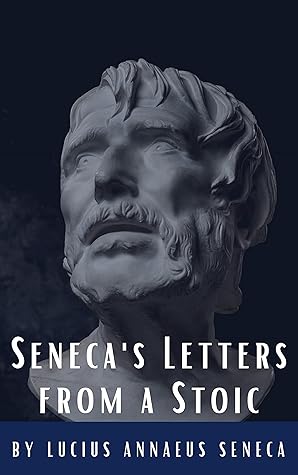More on this book
Community
Kindle Notes & Highlights
"You complain that you receive from me letters which are rather carelessly written;" but the ingenious juxtaposition of effective words, the balance in style and thought, and the continual striving after point, indicate that the language of the diatribe had affected the informality of the epistle.
certain moments are torn from us, that some are gently removed, and that others glide beyond our reach. The most disgraceful kind of loss, however, is that due to carelessness. Furthermore, if you will pay close heed to the problem, you will find that the largest portion of our life passes while we are doing ill, a goodly share while we are doing nothing, and the whole while we are doing that which is not to the purpose. 2. What man can you show me who places any value on his time, who reckons the worth of each day, who understands that he is dying daily? For we are mistaken when we look
...more
Nothing, Lucilius, is ours, except time. We were entrusted by nature with the ownership of this single thing, so fleeting and slippery that anyone who will can oust us from possession.
You may desire to know how I, who preach to you so freely, am practising. I confess frankly: my expense account balances, as you would expect from one who is free-handed but careful. I cannot boast that I waste nothing, but I can at least tell you what I am wasting, and the cause and manner of the loss; I can give you the reasons why I am a poor man. My situation, however, is the same as that of many who are reduced to slender means through no fault of their own: every one forgives them, but no one comes to their rescue.
When friendship is settled, you must trust; before friendship is formed, you must pass judgment.
make life as a whole agreeable to yourself by banishing all worry about it. No good thing renders its possessor happy, unless his mind is reconciled to the possibility of loss; nothing, however, is lost with less discomfort than that which, when lost, cannot be missed. Therefore, encourage and toughen your spirit against the mishaps that afflict even the most powerful.
Hecato that the limiting of desires helps also to cure fears: "Cease to hope," he says, "and you will cease to fear." "But how," you will reply, "can things so different go side by side?" In this way, my dear Lucilius: though they do seem at variance, yet they are really united. Just as the same chain fastens the prisoner and the soldier who guards him, so hope and fear, dissimilar as they are, keep step together; fear follows hope.
Beasts avoid the dangers which they see, and when they have escaped them are free from care; but we men torment ourselves over that which is to come as well as over that which is past. Many of our blessings bring bane to us; for memory recalls the tortures of fear, while foresight anticipates them. The present alone can make no man wretched.
can show you many who have lacked, not a friend, but a friendship; this, however, cannot possibly happen when souls are drawn together by identical inclinations into an alliance of honourable desires.
Just as the sick man, who has been weak for a long time, is in such a condition that he cannot be taken out of the house without suffering a relapse, so we ourselves are affected when our souls are recovering from a lingering disease.


